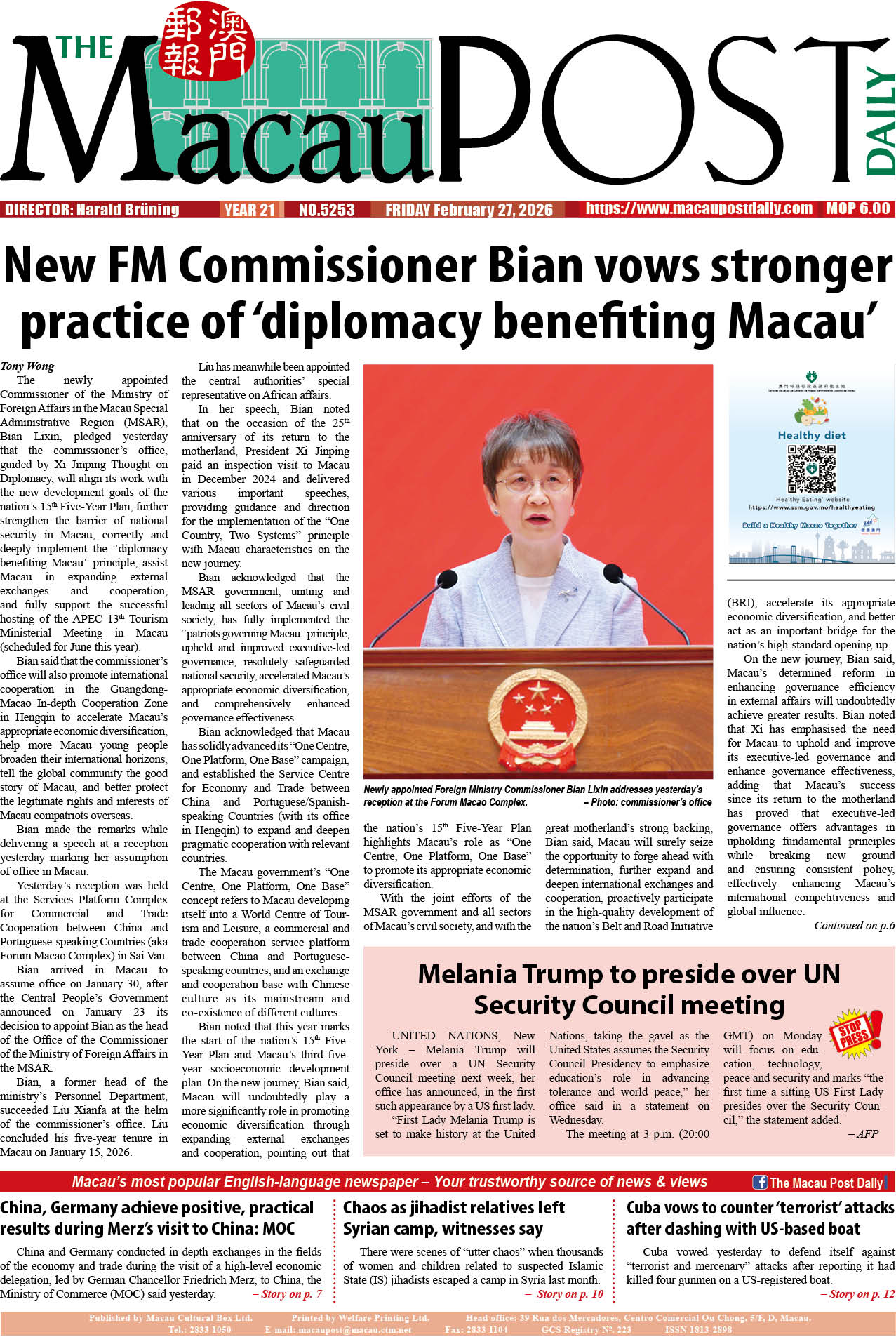Commentary by Xinhua writer Jiang Li
BEIJING - Across the world, the confluence of an unprecedented pandemic and transformations rarely seen in a century is posing a global challenge of epic proportions for humanity.
To weather this turbulent moment in human history and keep the dream of building a better world for all alive, the world community needs to stick to true multilateralism, hold each other's hands even tighter and take more concrete joint measures.
The top priority is to beat the pandemic. All nations should always put people and their lives first, and enhance coordinated global COVID-19 response and minimize the risk of cross-border virus transmission.
To ensure that vaccines are affordable and accessible for all, the world should reject firmly vaccine nationalism. In his statement at the general debate of the 76th session of the United Nations General Assembly via video link yesterday, President Xi Jinping reiterated China's pledge to provide a total of 2 billion doses of vaccines to the world by the end of this year.
It is also imperative that countries work together to steer global development toward a new stage of balanced, coordinated and inclusive growth.
To meet this goal, Xi in his remarks proposed a Global Development Initiative, in which China has pledged an additional US$3 billion of international assistance in the next three years to support developing countries in responding to COVID-19 and promoting economic and social recovery.
Stimulating economic progress and protecting the environment are equally important and should be pursued at the same time. China has promised on multiple occasions that it will strive to peak carbon dioxide emissions before 2030 and achieve carbon neutrality before 2060.
Xi also pledged at the UN general debate that China will not build new coal-fired power projects abroad, and offer more support for other developing countries in green and low-carbon energy.
The international community should also embrace civilizations of various forms, and accommodate diverse paths to modernization.
Differences and problems among countries are hardly avoidable, and need to be handled through dialogue and cooperation on the basis of equality and mutual respect. A new type of international relations based on mutual respect, equity, justice and win-win cooperation is also needed.
Unfortunately, some countries view international relations as a you-win-I-lose zero-sum game. In the name of promoting democracy and human rights, they are keen to form "small circles" and wantonly interfere in other countries' internal affairs. They seek to disrupt normal development in those countries and deny the legitimate rights to better lives of the people there.
However, as the world has grown ever interconnected, the fates of all countries are bundled together like never before. Just as Xi stressed, "one country's success does not have to mean another country's failure, and the world is big enough to accommodate common development and progress of all countries."
In the final analysis, building a better world for all also hinges on whether members of the international community can improve global governance and practice true multilateralism.
Some countries are talking about safeguarding "the rules-based international order" under the banner of multilateralism. Yet the rules they are talking about are the ones that only serve their interests instead of the world's general well-being.
In the world, there is only one international system, the one that is with the United Nations at its core. There is only one international order, the one that is underpinned by international law. And there is only one set of rules, namely the basic norms governing international relations underpinned by the purposes and principles of the UN Charter.
The United Nations should hold high the banner of true multilateralism. Thus, the United Nations should be committed to increasing the representation and say of developing countries in international affairs, and taking the lead in advancing democracy and rule of law in international relations.
The world has arrived at another critical juncture. Choosing the right path forward demands both vision and action. So long as all countries can stay confident and united, nothing will prevent humanity from achieving the noble cause of building a better world for all. - Xinhua








